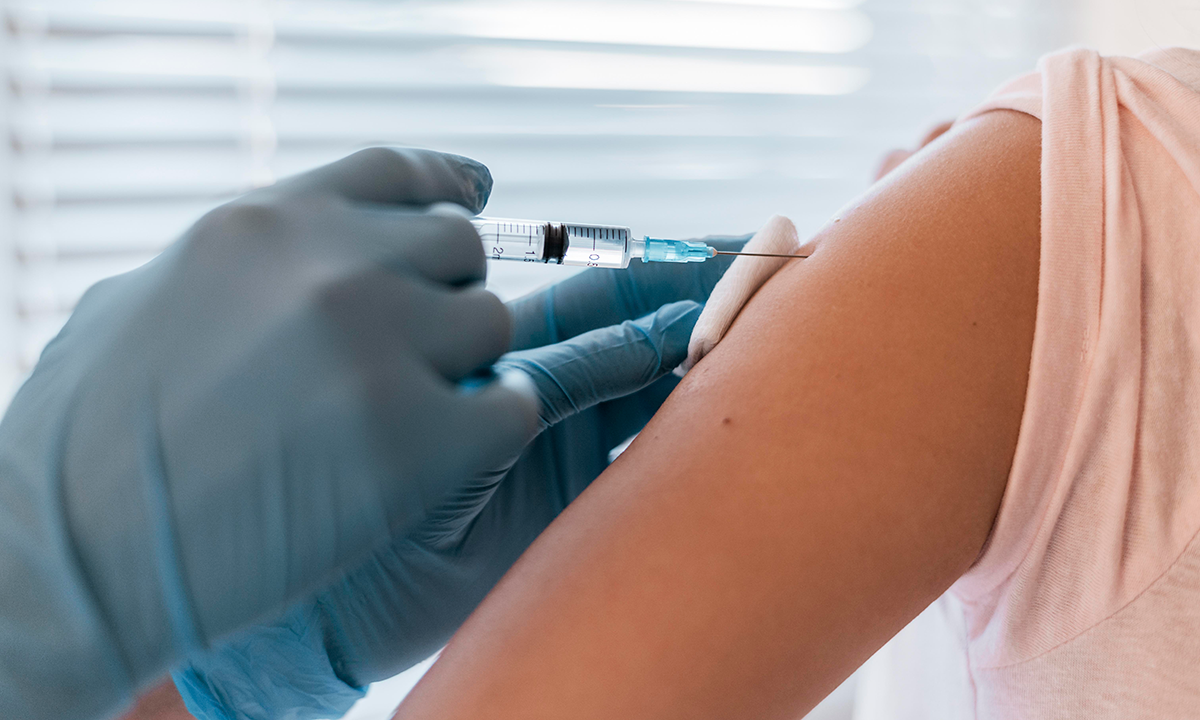
Soon all of us will be asked the same important question. Do I want to be vaccinated against corona? In newspapers, on radio and television and on social media we hear different opinions. But what does science say? In this text we, medical scientists of the Royal Netherlands Academy of Arts and Sciences (KNAW), a member of the FEAM, explain why we will take the vaccination.
This information maybe useful for your own decision. We suggest that you also discuss this with other people. They may also struggle with the question as to whether they want to be vaccinated.
How does vaccination work?
When we get infected by a bacterium or a virus, it will take a while before our defence mechanisms are fully active. When our defence fully works, our body is often very much able to get rid of the infection. That is the way we get better. With some diseases it is more difficult for our body to combat the disease. Examples of the latter are measles, whooping cough and polio. Yet there is something we can do about it. What helps with these more dangerous diseases, is to prepare our body against the infection. That is what we do if we take a vaccine.
With such a vaccine, we provide our body with arms before the real infection comes. Due to the vaccine, we may develop a slight fever, a headache or aching muscles near the injection site. That is enough to activate our body’s defence system, similar to what would happen with a real infection. Within a few weeks after vaccination, we are protected against the infection. This is the way it goes with vaccination against measles, whooping cough and polio. These and other serious infections are nowadays rare, because medical science has succeeded in developing good vaccines. And also, because nearly all children are being vaccinated against these diseases. The graph shows how we have succeeded by using vaccination to eliminate a disease like polio in the Netherlands. Between 1994 and 2019, there were no cases of polio at all in this country. This is due to the vaccination programme that was started in 1957. Nearly all parents have their children vaccinated since that year.
Polio in the Netherlands before and after the start of the vaccination programme in 1957. Source: www.volksgezondheidenzorg.info
Protection by a vaccine usually lasts very long, for some vaccines lifelong. But sometimes there is a need to have a vaccination again. After the second and sometimes the third injection, protection is much stronger than after the first injection.
It is a pity that it is not always possible to make a vaccine. Despite a lot of research. Still there are no good vaccines against infectious diseases like AIDS and malaria.
Luckily enough it looks good for COVID -19, the disease that is caused by the coronavirus. We will be able to control that disease pretty soon, just like we were able to control measles, whooping cough and polio. From the beginning of 2021, effective vaccines are available. These vaccines also seem to work well against new forms of the coronavirus which recently appeared.
It is important to realize that the corona vaccines will only be successful if many people are vaccinated, in the same way as is done for other dangerous infections. It is really simple: if nobody can get the disease, nobody can infect another person. Ultimately the infection will totally disappear.
How safe are vaccines?
Vaccines can have side effects, that is a fact. But they may only be used if they have been extensively tested for safety by independent organisations. In the past there have been harmful side effects, but these were rare and did not outweigh the protection provided by the vaccines. Nowadays, researchers understand much better how vaccines exactly work. Therefore, modern vaccines are much safer than those in the past.
Corona vaccines have been developed rapidly. That was necessary. Otherwise, the damage done by corona would be much greater. Researchers were already working to make vaccines against other viruses. The knowledge they acquired was directly useful for corona vaccines. Although these new vaccines have been developed quickly, they are safe. The procedures with which they have been developed were exactly the same as is customary with other new medicines and vaccines. That the corona vaccines are safe has become clear from all the investigations that were done. Thus, quick does not mean too quick.
The available vaccines against corona virus give few or no side effects. That is what we know from scientific investigations that involved ten-thousands of people. Experts from all over Europe very carefully check these investigations. Only if a vaccine appears to protect us and does not harm us, it may be used.
If we take one of these licensed vaccines, we not only protect ourselves. We also protect each other, because we cannot infect our family, friends and colleagues anymore. This is not just an opinion in the discussion on vaccination. It is the conclusion of the best experts in Europe and elsewhere.
That is why we, medical scientists of the Royal Netherlands Academy of Arts and Sciences, will take the corona vaccine. You too?